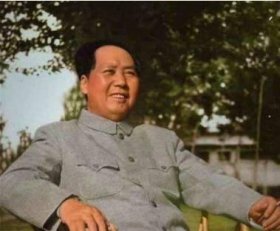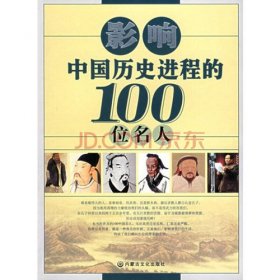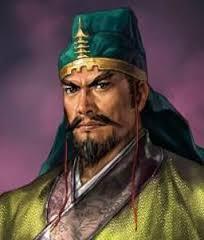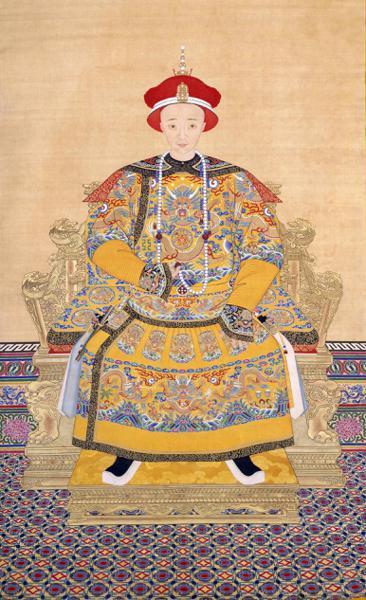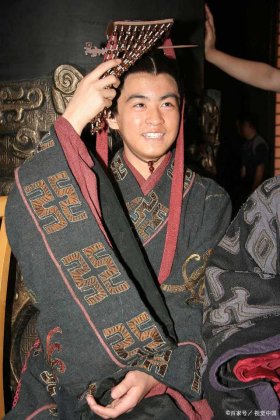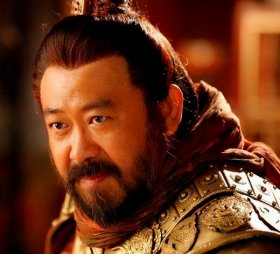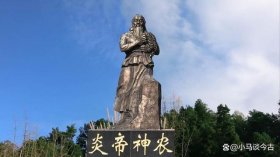晚清新式绅商的公民意识与政治参与(英文)
-
晚清,新式,绅商,的,公民,意识,与,政治,参与,

- 中国历史故事-小虎历史故事网
- 2023-08-18 11:09
- 小虎历史故事网
晚清新式绅商的公民意识与政治参与(英文) ,对于想了解历史故事的朋友们来说,晚清新式绅商的公民意识与政治参与(英文)是一个非常想了解的问题,下面小编就带领大家看看这个问题。
原文标题:晚清新式绅商的公民意识与政治参与(英文)
Citizenship Consciousness and the Political Participation of the New Gentry-Merchants in the Late Qing*Accord
中国历史故事片段赏析
ing to contemporary theories of political development, certain forms of local autonomy are an important requirement for political modernization.1 In the late nineteenth and early twentieth centuries in China, the newly emerging bourgeoisie formed two movements aiming at political renovation: the revolutionaries and the constitutionalists. Yet both groups shared the goal of transforming the traditional system of autocratic monarchism and turning China onto the road of modern, democratic nations. The bourgeoisie, with the new gentry-merchants at its core, wanted to establish the political system of "local self-government" (difang zizhi) as a way to save the age and transform the system. This was also the first attempt to modernize local government in China.Local self-government in the late Qing possessed two basic characteristics. First, following the corruption of Qing politics and the worsening of the national crisis, the newly emerging bourgeoisie advocated emulating the democratic system of the capitalist nations of the West, reforming the traditional political structure, and striving for Chinese independence and strength. They clearly supported plans for local self-government and strove mightily to put them into practice. The rise of local self-government in the late Qing was therefore a product of the development of national capitalism and a manifestation of the "political attainment" of citizenship consciousness and political participation. Second, owing to the decline of central power and the ossification of the bureaucracy in the late Qing, as well as the disintegration of basic political authority at the local level and the constantly increasing severity of social instability, the feudal ruling class wanted the government to adopt local self-government policies. This way, the feudal forces could strengthen their control over society and stabilize the political base of imperial authority.
The local self-government movement of the late Qing was also characterized by local consciousness and influences since it emerged out of the mutual interaction of society and government. This essay explores how the bourgeoisie, with the new
中国历史故事西周
gentry-merchants at its core, developed citizenship consciousness and began to participate in politics over the course of the local self-government movement.Intellectual Support for Local Self-Government to 1905 Local Institutions in China and the West
"Local self-government" in its contemporary sense is a product of the political culture and historical conditions of Western capitalism. Local self-government in Europe and America originated in the "citizen government" of the classical and medieval eras. Following the rise in the forces of production and the development of the social division of labor in the eleventh and twelfth centuries, commercial cities gradually developed in the territories possessed by the church and feudal lords. For their own survival and development, urban residents began to free themselves from the power struggles of the feudal lords. They formed a new urban organ of self-government--the "commune"--based partly on the old German Markgenossenschaft. They took all sorts of paths toward different degrees of independence and self-government, and some developed to the point of independent city-republics. Although urban self-government in Western Europe was never entirely able to cast off every feudal attribute, the lengthy period of "citizen government" formed the intellectual and organizational basis on which modern local self-government systems could be erected.
Capitalism began to expand by the sixteenth and seventeenth centuries, following the growth of the commercial economy in Western Europe. The new bourgeoisie steadily mounted the political stage, opening the struggle against autocratic monarchism. In the eighteenth century, owing to the propagation of more democratic thought and the revolution in production, the bourgeoisie of various European nations assumed commanding economic positions and were then able to seek political equality. Their goals were to protect their economic privileges and safeguard the system of local self-government which gave them political rights. After the bourgeoisie gained political control nation-wide, they improved the system of local self-government.
With the success of the bourgeois revolution across Western Europe, the principles of the separation of powers resulted in the spread of local assemblies and administrative organs, electoral systems, and local self-government within the scope of constituti
中国历史上真实的求佛故事
onal procedures. After 1835 Britain promulgated self-government regulations for various levels of government, dividing the nation into counties, towns, and rural districts, each with its own representative body and administrative organs. Britain thus practiced complete self-government. After the Revolution of 1789, France divided the nation into provinces, departments, counties, and towns, each with its local electoral system. France underwent two political setbacks, but during the Third Republic it steadily promulgated various laws to establish an electoral system and expand self-government authority at every level of local government. Prussia was divided into provinces, counties, and prefectures, and after Germany was unified in 1812 local government was reformed several times to expand the scope of local self-government, establish judicial oversight, and strengthen the political capacity of the people.2The self-government systems of the Western European nations had an extensive influence on other capitalist nations in Europe and the Americas and on Japan. The local system of the United States was influenced by Britain while that of Japan was influenced by Germany. Japan's political tradition was similar to China's, but the Meiji Restoration of 1868 reformed its political structure. In 1888 it instituted a system of cities, towns, and villages and in 1890 a system of districts, counties, and prefectures. Cities, towns, and villages were given the lowest level of self-government, prefectures a middle level of self-government, and districts and counties the highest level of self-government At every level self-government was divided between the legislative, with a representative body, and the administrative, with an executive body, both elected.3 Still, self-government in Meiji Japan was completely in accord with the spirit of the imperial constitution. It operated under the restrictions and control of the central bureaucrats. "The limits on self-government are determined by the laws, and they cannot do as they will. "4
In China, a long history of feudal-monarchical autocracy as well as a deep tradition of centralization led to the total lack of local self-government in thought and reality. In the late Qing a completely different attitude arose, but, until then, local government during the Qing was marked by two basic features. First localities were obviously subject to the center. Officials at every level were appointed by the court; their duties were vague and overlapping. All important military and governmental plans depended on the emperor's will. This concentration of powers not only was extreme during the successive periods of Chinese history but also flourished to an extent rarely found among other nations. Second, local government consisted of the "two-track politics" of officials and gentry acting together. From the capital to the most distant provinces, every single matter was determined by orders from the court to the officials, yet as China's borders expanded and the population grew, much naturally remained beyond the court's purview. Local administration generally stopped at the level of the department and county during the Qing. Basic society at the level below the counties was therefore controlled by gentry, who built a gentry politics outside of the state. This is what the famous sociologist Fei Xiaotong called the "invisible organization" stemming from the bottom toward the top of society.5 This kind of gentry politics grew gradually after the Qin dynasty (221-206 B.C.) to become the system of Township officials(xiangguan).
The traditional township system was somewhat like the modern local self-government system in its form and functions. In the late Qing a large number of people thus thought that, "China doesn't call it 'local self-government' but the system exists in reality."6 In fact the township system of China and the local self-government system of the West were completely different. First, although the township officials in the past were produced by "elections" (xuanju), these were hardly democratic elections expressing the will of the people; rather, they were selected and ratified by officialdom. Second, township officials lacked the independent administrative powers to decide local matters, rather, they only supplemented the bureaucracy.7 Third, gentry politics was the product of the political culture of feudal despotism. Although the traditional political culture recognized the political importance of the people with such phrases as "the people are the basis of the state" and "the people are important but the ruler is unimportant"--nonetheless the ideology of the people as the basis of the state at best acted only to restrain the vast imperial powers. it could not produce democratic ideologies along the lines of "sovereignty resides in the people" and "government stems from the people."
We can see from the above that the spirit and nature of local government in the West were completely different from that in China. The notion of local self-government based on bourgeois democracy in the late Qing did not develop naturally out of traditional political culture. Rather, it resulted from the intellectual and organizational influence of Western bourgeois democracy.
The Introduction of ideas about Local Self-Government
Chinese began to gain an understanding of Western democracy at the time of the Opium War. The invasion of China by outside forces and the corruption of the court provoked a few members of the landlord class to open their eyes to the world. They translated and compiled a number of geographical treatises that offered a preliminary introduction to the local government systems of Britain, the United States, and other countries. These writings were quite superficial, but in ways previously impossible they greatly influenced a Chinese society that had for so long firmly shut out the rest of the world. After the 1860s foreign contacts grew constantly. Ambassadors and embassy officials wrote large numbers of diaries and travel accounts describing the local assemblies and self-government systems of the Western nations.8 However, these descriptions were mostly perfunctory and shallow reactions of the landlord class and intellectuals who had not yet formed a systematic and lucid understanding of the West. It was the early reformist thinkers of the period from 1860 to 1890 who seriously thought through questions about government and offered concrete suggestions.
In his famous reformist work of the 1860s, "Straightforward Words from the Lodge of Early Zhou Studies," Feng Guifen advocated that localities be separately governed and that local officials be "elected by the masses" (youzhong gongjue). Feng felt that the ruler should rule cooperatively and by delegating powers.
The emperor cannot rule the empire alone, and so he delegates power to the great ministers. A great minister cannot rule a province alone, and so he delegates power to the prefectural magistrates. A prefectural magistrate cannot rule the prefecture alone, and so he delegates power to the county magistrates. A county magistrate cannot rule a county alone, and so be delegates power to the various lower officials.
Feng advocated a return to the local system of ancient times, in which local officials at the county level and below would be selected by "public elections" and "alternate every three years."9 Feng's recommendations amounted to a criticism of feudal local bureaucratism. They served as an initial call of the early reformist movement, but few agreed with him since China then lacked a social base capable of response.
From the 1870s to the 1890s, following the gradual disintegration of the natural feudal economy and the initial upsurge of national capitalism, a group of reformers became intrigued by Western democracy. They began to examine China's traditional local government and clearly advocated local self-governmen
中国历史著名人物故事生平
t. Zheng Guanying, Wang Tao, Xue Fucheng, Ma Jianzhong, Tang Zhen, He Qi, Hu Liyuan, Chen Qiu, Chen Chi, and others were important early reformers. They recommended two main ideas.1. The establishment of local assemblies. Zheng Guanying was the first to advocate a parliament. In his "Warnings to a Prosperous Age" he stated that in the West, "the origins of order and the roots of wealth and strength lay not so much in warships and artillery as in the capacity of parliaments to unite the high and low." If China wanted self-strengthening, "it first needed to establish a parliament to reach popular sentiment, and then it could expand the might of the nation and prevent foreign humiliation."10 However, he did not have much to say about the establishment of local assemblies. It was the Zhejiang native Chen Qiu who clearly advocated the establishment of local assemblies. In his "General Discussion of Order," he said that the assemblies in Western nations acted to unite the sentiments of high and low, but because their political systems were complex, it would be hard for China to follow them. "We should change our institutions and order every province and district to establish an assembly," he wrote. "To reform the state and the localities, within five days officials should make suggestions according to their circumstances.... We may then select the best suggestions and put them into practice."11 At the same time Tang Zhen also advocated "selecting methods from the West and adapting them [to Chinese conditions]." Aside from a central parliament including high and low, "the affairs of the provinces, departments, prefectures, and counties should be discussed; from the great gentry to the examination candidates, all should join the discussions."12 He would thus allow political participation by all local scholars and gentry.
2. Public selection of township officials (xiangguan). At the same time as the early reformers were advocating assemblies, they also advocated elections for representatives and township officials. Zheng Guanying urged that, "China's system of selecting township and village officials should use the Western system of casting ballots in public elections in order to choose talented representatives."13 Chen Chi was even more definite on the subject. He finished his "Commonplace Writings," a book of one hundred sections, before the Sino-Japanese War of 1895. His section on township officials proposed that "every prefecture and county should institute the Western system of assemblies. Township officials should be elected by the common people." Every township would elect two people, one regular and one alternate, at least thirty years old and with property worth a thousand in gold. Officials would post notices to urge the people to vote, and they would place voting boxes by the roads; voting would last three months, at which point the man with the most votes would be elected. The term of office would be two years, followed by new elections. "When a district has major political questions, [the elected leaders] will assemble to consult about them. They will delegate and carry out the tasks of nourishing the people and establishing the teachings, promoting good things and abolishing evil ones, resulting in benefit to the state and the people alike." Chen considered that a system of township and village elections would allow the state to find good leaders and enable the people to seek their happiness. In order to raise up the nation and benefit the people, therefore, "one must start with the establishment of township officials."14
It should be clear from the above that these ideas about local self-government in the late Qing were derived from the local self-government systems of the Western capitalist nations and their positive introduction by some of the early reformers. Ever since the Opium War of 1840, a group of landlord reformers, as well as envoys and their followers, continued unceasingly to introduce the local self-government systems of the West. By the 1890s a group of early reformers--in the process of becoming bourgeois instead of landlord intellectuals--emerged out of the statecraft school to criticize China's bureaucratic political system. They urged that China learn form Western local government systems, establish assemblies, and elect township officials. However, their knowledge and ideas were still extremely limited. Their goal in establishing assemblies was to erase the gap between the ruler and the people or "to unite the high and the low," and their purpose in electing township officials was to gain the support of the people or stabilize popular sentiment. As Zheng Guanying concluded, "To strengthen the country, nothing is more important than gaining the people's support; to gain the people's support nothing is more important than reaching down to popular sentiment; to reach down to popular sentiment, nothing is more important than establishing assemblies." His goal was to create "harmony between ruler and people, their amity deep."15 Obviously this attitude did not transcend the scope of traditional "people as roof" (minben) thought and failed to approach the West's parliamentary and self-government systems based on democratic notions.
Nurturing Self-Government programs in the Era of the 1898 Reforms
The Sino-Japanese War of 1894-95 had a major impact on modernization. The war forced the government's "Western affairs self-strengthening movement" to declare bankruptcy, and the national crisis deepened. At the same time, following the preliminary development of national capitalism, the political representatives of the new bourgeoisie began to mount the political stage. They examined the painful lessons of the defeat of the great Chinese Empire by the small Asian country of Japan, determining that the self-strengthening movement would never be able to save the nation from perishing and that the reasons for China's weakness lay in the corruption of autocratic government. They therefore advocated that China emulate Western political systems to reform Chinese politics. While offering plans to create a constitutional monarchy, they were also advancing discussion about local government, thus fostering clearer ideas about local self-government reforms.
Not long after the Sino-Japanese war had exploded, such early reformers as He Qi and Hu Liyuan presented a more sophisticated explanation of local self-government. In criticizing the basis of traditional bureaucratic politics, they urged that assemblies be established at the provincial, prefectural, and county levels, and that each assembly have sixty members. County assemblymen would be elected from among xiucai, prefectural assemblymen from among juren, and provincial assemblymen from among jinshi. All educated refined males over the age of twenty would be given the "right of suffrage" (gongiu zhi quan). He and Hu also outlined the responsibilities of assemblymen and the powers of the assemblies:
Assemblymen will apply their knowledge to government, thus helping to solve the problems of the people and nourishing harmony among them. The good of the locality and the preferences of popular sentiment all will be expressed by the assemblymen to the officials. The reforms which officials want should be discussed with the assemblymen, and what the assemblymen want should be discussed with the officials. Everything should be done through the expression of opinion, and after the officials and assemblymen agree, then they can decide on the matter.... If agreement cannot be reached on a certain matter, then how many approve and disapprove should be determined and the matter arranged according to the greater part. This is called following the majority. 16
This obviously represents a deeper understanding of local government than anything before the war. He and Hu not only spoke of the "right of suffrage" but they also enlarged the scope of voting participation and urged that proposals be settled by "following the majority," thus giving local assemblies the right to plan local political affairs.
The loss to Japan shocked the court and politically aware literati alike. Such resolute bourgeois reformers as Kang Youwei, Liang Qichao, Tan Sitong, and Yan Fu publicly promoted popular power (or "democracy," minquan), urged institutional reform (bianfa), and created the reform movement of 1898 to change the traditional autocratic system. Their reformist writings included a great many ideas and recommendations on reforming local government.
Liang was one of the leaders of the reform movement of 1898. He had been a teacher at the School of Contemporary Affairs (Shiwu xuetang) in Changsha and had founded the Southern Study Society (Nanxuehui) with Hunanese reformers to "promote practical learning, to arouse literal opinion, and to perfect local self-government institutions."17 In his 1898 essay "What Should Be Done in Hunan," Liang focused on the growing imperialist threat to partition China and urged that Hunan should accomplish various tasks after it had protected itself and become autonomous. Liang's proposals included extending popular rights, emphasizing the rights of localities, and cultivating the political capacities of the people. "If we want to reform thoroughly, we need to start with uniting the sentiments of the high and the low, if we want to unite the sentiments of the high and the low, we need to turn to ancient concepts, select Western methods, and emphasize the rights of localities."
Liang argued for two approaches to institutionalize local rights: enlightening the gentry and demarcating their powers. How would the gentry be enlightened? Liang urged that their characters and abilities be cultivated in academies. Every prefecture and county should recommend "gentry and scholars of upright moral character and possessing talent and intelligence" to gather at the Southern Study Society. The Society would establish periods of discussion and academic work. The practicality of all reform proposals would be discussed. "After studying every day and conducting business every day for a year, the Society's men will be able to assume most of the assemblymen positions." How would their powers be demarcated? Liang argued that China should follow the Western model and separate legislative from administrative functions. Assemblymen would have the right to pass laws but not to carry them out, while administrators would have the right to carry them out but not to pass them. In this way, "once the gentry were enlightened and limits set on their power" all of the intelligence and talent in the entire province would be devoted to "seeking to carry out the affairs of the province, to rid the province of harm, and to ward off difficulties that might beset the province so that every problem would have a solution."18
After the defeat of the reform movement, Liang was all the more concerned with the establishment of local government. Comparing Chinese and Western local institutions, Liang concluded that local self-government systems in the West were uniform. Following the same set pattern, they could ordinarily work together in the same spirit and formed a single system; dispersed into hundreds of pieces, they combined into one body. However, "China is different. Its institutions are incompatible and localities do not share the same interests. Therefore, China is divided, its spirit dissipated, and its strength weakened so that when it tries to protect itself it wastes its strength and gains little." Liang thus emphasized: "If we seek to strengthen the state, we must start by unifying the strengths of each person in the whole realm to do what he ought to do. Local self-government (责任编辑:admin)
原文出处:http://his.newdu.com/a/201711/11/543753.html
以上是关于晚清新式绅商的公民意识与政治参与(英文)的介绍,希望对想了解历史故事的朋友们有所帮助。
本文标题:晚清新式绅商的公民意识与政治参与(英文);本文链接:http://gazx.sd.cn/zggs/21653.html。
猜你喜欢
- 文化-晚清时的名片素面朝天 设计简单见名字如见本人 2023-10-22
- 手枪-晚清的革命党第一刺客:拔出手枪后竟然不会用! 2023-10-22
- 丁宝桢-揭秘:晚清名臣丁宝桢是怎样摆平那些权贵们的 2023-10-22
- 中国近代史-晚清官场“门子”索贿:没有红包就休想进门 2023-10-19
- 镇南关大捷-晚清重臣重修祖宅只花6两银子 曾缔造镇南关大捷 2023-10-16
- 中国古代史-揭秘清末三朝皇帝为什么接连“绝后”? 2023-10-14
- 黄飞鸿-晚清后十大武林高手排名 一代宗师黄飞鸿只排第三 2023-10-14
- 李鸿章-如果晚清不是这三个败家汉奸中国历史可能是另一个样子 2023-10-12
- 中国近代史-探秘:晚清政府最扬眉吐气的一场战斗 2023-10-12
- 婉容-晚清皇后通奸之谜:婉容两位情人的最后结局 2023-10-12
